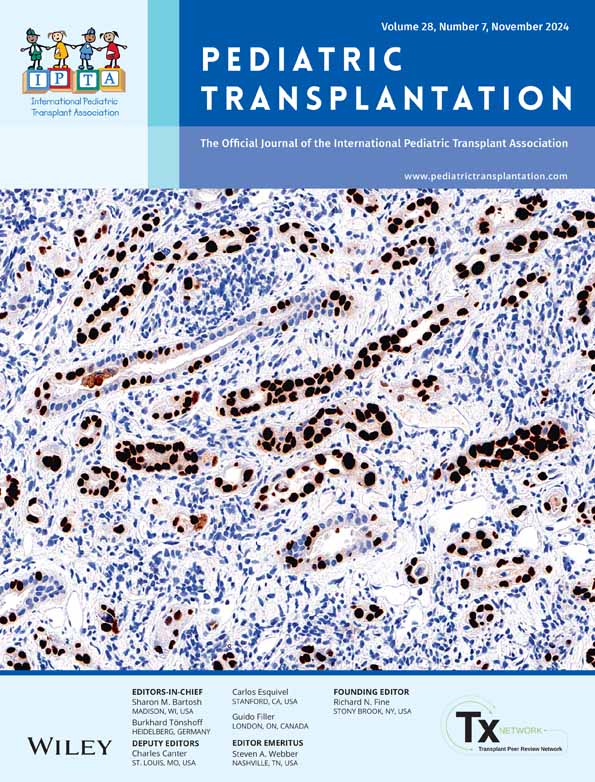Utilization of Hepatitis C Virus-Infected Donor Hearts in Two Children and Two Young Adults: Initial Experience at a Pediatric Transplant Center
Funding: The authors received no specific funding for this work.
Elizabeth L. Profita and Sharon F. Chen have contributed equally as co-senior authors.
ABSTRACT
Background
Although adult transplant centers are successfully transplanting organs from hepatitis C virus (HCV)-infected donors with detectable viral load by nucleic acid testing (NAT+) into HCV-negative recipients, this practice has not yet been adopted widely by the pediatric heart transplant community.
Methods
We present a case series of four patients who received heart transplants from HCV NAT+ donors at a pediatric transplant center, including two pediatric patients < 18 years of age.
Results
All recipients tolerated a 12-week course of glecaprevir/pibrentasvir and achieved a sustained virologic response with no HCV or liver complications with over 1 year of follow-up (range 1.4–2.5 years). All four have had good post-heart transplant outcomes with normal graft function and good functional status without rejection or cardiac allograft vasculopathy at time of last follow-up.
Conclusions
This case series details the successful multidisciplinary implementation of a protocol to accept cardiac allografts from HCV NAT+ donors for transplantation into HCV negative recipients at our pediatric transplant center. With the limited donor pool in pediatrics and the morbidity associated with prolonged durations on the transplant waitlist, pediatric centers should consider utilizing organs from HCV NAT+ donors to broaden the donor pool. Future work should evaluate other organs beyond heart and optimal timing and duration of direct acting antiviral therapy.
Conflicts of Interest
The authors declare no conflicts of interest.
Open Research
Data Availability Statement
The relevant data supporting the findings are available within the article. Additional de-identified information may be available from the corresponding author upon reasonable request.




